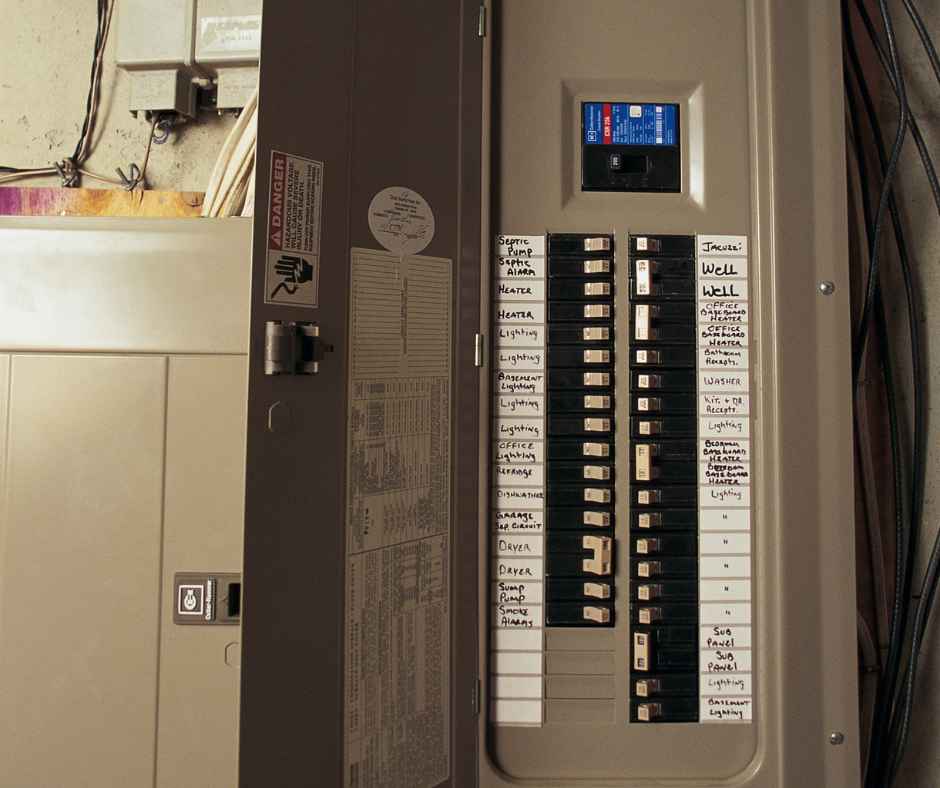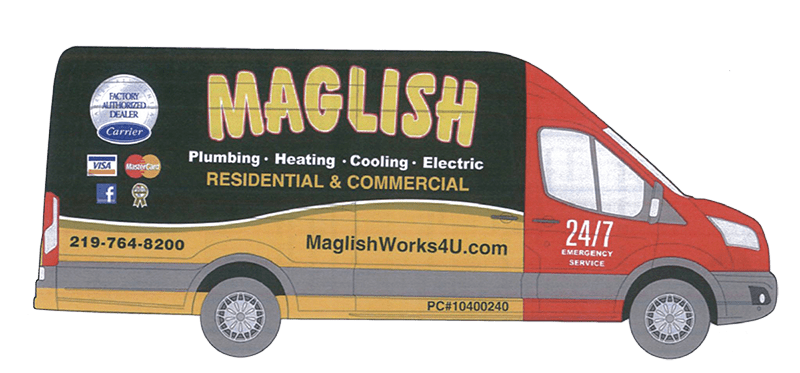
Your home’s electrical system is a complex network designed to power everything from your lights to your appliances. At the center of it all is the electrical panel, also commonly known as a breaker box. But what is an electrical panel, and why is it so crucial to your home’s safety and functionality?
In this blog, we’ll explain the purpose of an electrical panel, how it works, and when you might need electrical panel upgrades to keep your home running efficiently and safely.
What Is an Electrical Panel?
An electrical panel is the hub of your home’s electrical system. It distributes electricity from your utility provider to various circuits throughout your home. Each circuit supplies power to a specific area or set of appliances, and the panel ensures that the right amount of electricity is delivered where it’s needed.
The panel also includes circuit breakers or fuses, which act as safety devices to prevent overloads or short circuits. When a circuit exceeds its capacity, the breaker trips or the fuse blows, cutting off electricity to avoid damage or fire.
Components of an Electrical Panel
Understanding what is an electrical panel involves knowing its key components:
- Main Breaker: Controls the flow of electricity into the panel. It can shut off power to the entire house in an emergency.
- Circuit Breakers: Individual switches that control the flow of electricity to specific circuits in your home.
- Bus Bars: Metal strips inside the panel that carry electricity to the breakers.
- Neutral and Ground Bars: Ensure safe operation by providing paths for electricity to return to the panel or ground.
- Cover Panel: Protects the internal components and prevents accidental contact.
Why Are Electrical Panels Important?
The electrical panel is essential for managing your home’s power supply safely and efficiently. Here’s why it’s so important:
- Power Distribution: It ensures electricity is evenly distributed across your home’s circuits.
- Safety: Circuit breakers prevent dangerous overloads and short circuits.
- Convenience: The panel allows you to control and troubleshoot your home’s electrical system from one central location.
When Do You Need Electrical Panel Upgrades?
While your electrical panel is designed to last for years, it may need an upgrade due to aging, increased power demands, or safety concerns. Here are some signs you might need electrical panel upgrades:
1. Frequent Breaker Trips
If your breakers are tripping often, it could mean your panel is overloaded or outdated. This is a sign you may need a panel with higher capacity.
2. Outdated Equipment
Homes built before the 1990s may have panels that no longer meet modern safety standards. Upgrading to a newer panel can improve safety and efficiency.
3. Adding Appliances or Circuits
If you’re installing new appliances or building an addition, your current panel may not have enough capacity to handle the increased load.
4. Burning Smells or Scorch Marks
These are signs of overheating and potential fire hazards. If you notice these issues, call an electrician immediately for an inspection.
5. Upgrading to 200-Amp Service
Many older homes have 100-amp panels, which may not be sufficient for today’s power needs. Upgrading to a 200-amp panel provides more capacity and flexibility.
What Are the Benefits of Panel Upgrades?
Investing in panel upgrades can provide several benefits:
- Improved Safety: A new panel reduces the risk of electrical fires and ensures compliance with modern codes.
- Enhanced Efficiency: New panels distribute power more effectively, reducing strain on your electrical system.
- Increased Home Value: Upgraded electrical systems are a selling point for potential buyers.
- Support for Modern Technology: A higher-capacity panel can handle smart home devices, EV chargers, and other modern technologies.
Electrical Service: What to Expect During an Upgrade
Upgrading your electrical panel is a significant project that requires professional expertise. Here’s what you can expect during the process:
Inspection and Assessment
A licensed electrician will inspect your current panel, wiring, and electrical system to determine the best upgrade solution.
Selecting a New Panel
Based on your home’s needs, the electrician will recommend a panel with the appropriate capacity, such as a 200-amp panel for larger homes.
Installation
The electrician will safely disconnect your old panel, install the new one, and reconnect all circuits.
Testing and Final Inspection
Once installed, the new panel will be thoroughly tested to ensure it’s functioning correctly. A final inspection ensures compliance with local codes and regulations.
Breaker Box vs. Electrical Panel: What’s the Difference?
The terms breaker box and electrical panel are often used interchangeably, but they refer to the same component of your electrical system. Both names describe the box that houses your circuit breakers and distributes power to your home.
No matter what you call it, regular maintenance and timely upgrades are crucial for keeping your electrical service safe and reliable.
Why You Need Professional Electrical Panel Maintenance
Regular maintenance is essential to ensure your electrical panel operates efficiently and safely. Maintenance tasks include:
- Checking for loose connections
- Inspecting for signs of corrosion or overheating
- Testing circuit breakers to ensure proper function
- Replacing outdated components
Scheduling routine maintenance with a licensed electrician can extend the life of your panel and prevent costly repairs down the line.
Contact Us for Electrical Panel Upgrades and Maintenance
If you’re experiencing issues with your breaker box or need an upgrade, don’t wait to take action. At Maglish Plumbing, Heating, Cooling & Electric, we specialize in electrical panel upgrades, maintenance, and repairs to keep your home safe and efficient.
Contact us today to schedule an inspection or upgrade your panel. Let our experts ensure your home’s electrical system meets your needs for years to come!


